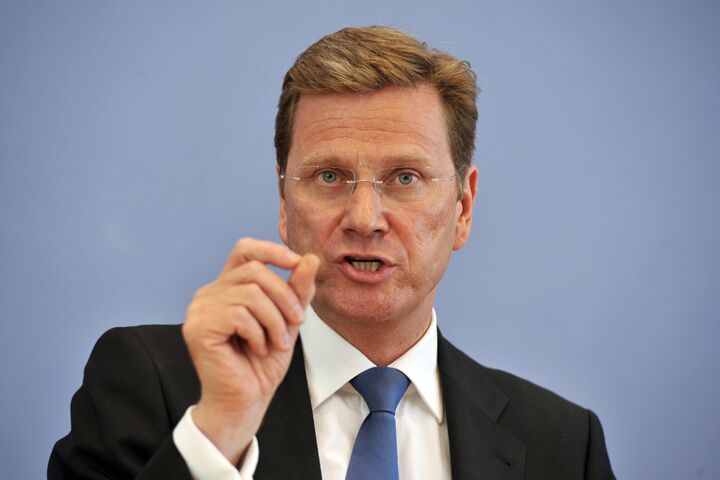
Germany Pushes Serbia on Kosovo
German Foreign Minister Guido Westerwelle has told Serbia that it must accept Kosovo’s independence. “Kosovo’s independence is reality,” he said. “There is no point in denying the facts.”
“A day will come for representatives of Belgrade and Pristina to sit at the same table and speak about the EU. It may now seem like a utopia for you, but it can be achieved. Reconciliation can succeed if you face reality. Independent Kosovo is a reality and the opinion of the International Court of Justice has uniquely confirmed it,” he told students at Belgrade University on August 26.
“The map of southeastern Europe has been laid down and completed.”
Westerwelle made it clear that Serbia had to accept Kosovo’s independence if it wants to be in the EU. “In our view, one can only be a member of the European Union if one aims for cooperation and is prepared to resolve neighborly difficulties cooperatively,” he said after a meeting with Serb Prime Minister Mirko Cvetkovic.
Serbia wants to join the EU but is unlikely to do so before 2015.
Since Westerwelle’s visit, Serbia has softened its stance slightly.
In July, Serbia submitted a resolution to the General Assembly at the United Nations stating that “unilateral secession is not an acceptable way to solve territorial issues” and calling for a “mutually acceptable solution to all open issues.” If passed, the resolution would be non-binding.
President Boris Tadic said he would be willing to discuss a compromise over this resolution, saying he wanted a resolution “that will remain in line with Serbia’s national interests but will also please big powers.”
However, he also stated, “Serbia will never recognize Kosovo. That is a red line that we will not cross.”
But the International Crisis Group, a non-profit organization, said it believes Serbia and Kosovo are ready for some kind of deal. Serbia, it believes, would be willing to swap Albanian land in southern Serbia for land inhabited mainly by Serbs in northern Kosovo. “Neither Pristina nor Belgrade proposes this openly, but officials in both capitals have begun to speak of it quietly,” it said.
Both Serbs and Kosovars insist that this is not the case.
As the Trumpet has explained for years, Germany was behind the breakup of Yugoslavia. It orchestrated Kosovo’s independence. Now it is simply mopping up.
Having Serbia recognize an independent Kosovo, and then join the EU, allows Germany to tidy up its colonization of the Balkans. This strategically important area of land will have gone from an anti-Western power to an EU colony.
The EU already dominates the Balkans. Now it is working toward a tidy finish.
For more on Germany’s invasion of the Balkans, see our free booklet The Rising Beast—Germany’s Conquest of the Balkans.
